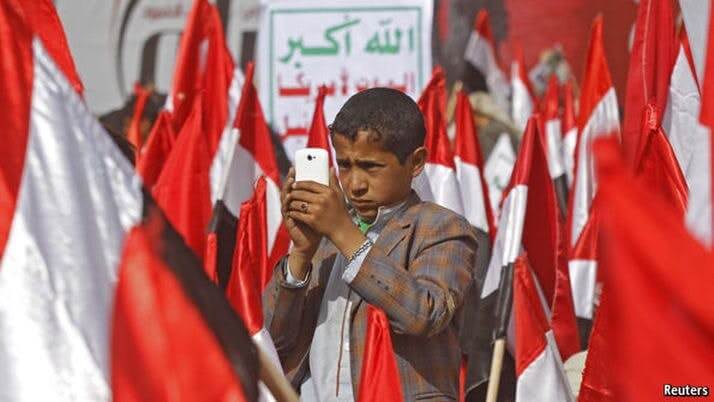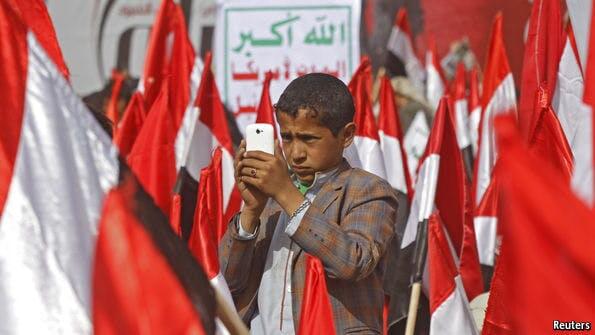By Erasmus
It seems a long time ago. Four years back, when human-rights campaigners, brave dissidents and their supporters assembled for an annual get-together in Oslo, there was a giddy optimism in the air. From Morocco to the Gulf and far beyond, a vast change of consciousness seemed to be sweeping over the Arab and Muslim world, comparable to the pro-democracy movement which overcame communism around 1990. As you’d expect, feelings were especially upbeat among some of the drivers of that change: the young bloggers and stars of cyber-space who had used technology to communicate freely with their compatriots and bypass the dreary official media.
So how do things stand in 2016, as the Oslo Freedom Forum brings together a bigger-than-ever collection of campaigners against tyranny? Clearly the euphoria generated by the Arab Spring, which spread to many other despotic places, was excessive, to put it mildly. Syria and Yemen are mired in civil war; Saudi Arabia seems as intolerant of dissent as ever; elsewhere in the Arab Gulf, prosperity is offered as a substitute for liberty; Egypt has swung from elected Islamism to secular authoritarianism; and Libya is struggling to avoid disintegration. Only in Tunisia, where the largest party has just formally renounced Islamism, is there still some ground for liberal hope.
But among protagonists of the Spring, there is still a feeling that certain gains are intact: above all, the liberation of young minds by digital technology which enables them to escape and see through the propaganda messages of their masters. The mere fact that social media penetration is so high augurs well for the future, some say; tools which are now used for business or recreation may in future be used to drive political change.
In the words of Amir Ahmad Nasr, a young writer and digital entrepreneur from Sudan:
“The Arab Spring is indeed politically dead, with the exception of Tunisia… But in various positive ways the Spring continues culturally. The ongoing change of consciousness is palpable. The [digital] arts scene in Saudi Arabia is booming. The rise of mobile enabled e-commerce is inexorable, and entrepreneurship is being embraced by young people from Tunisia to Egypt to Lebanon to the United Arab Emirates. More young Arabs than ever are awakening to the fact that they have agency, and the digital tools that will help them express it.”
Nor have political or personal setbacks dented the energy of Iyad el-Baghdadi, another activist and tech entrepreneur who lived in the UAE until he was expelled in 2014. His Twitter account received over 100m views last year. His biggest long-term project involves fleshing out what he calls Islamic Libertarianism: he is delving into Arab and Muslim sources (such as Abdulrahman al-Kawaakibi, a 19th-century Syrian thinker) to find inspiration for the idea that Islam can flourish in conditions of freedom, and to challenge the false choice between “terrorism or tyranny” that still seems to hang over much of the Islamic world.
With a Libyan-British collaborator, Ahmed Gatnash, he wants to disseminate the idea that over-mighty states (whether Islamic or secular) are foreign to what is best in the Muslim tradition. The experiments in local self-government that sprang up in the heat of the Egyptian uprising can serve as an encouraging example, they believe.
Even in the hell of the Syrian war, as this year’s Oslo gathering learned, high-tech communications can help the cause of truth. Abdelaziz Alhamza is a young “citizen journalist” from the Syrian city of Raqqa, headquarters of Islamic State (IS). After escaping in 2014, he cofounded “Raqqa is Being Slaughtered Silently”, a group which used smuggled photos and videos, obtained at great risk, to document the horrors of life under IS and provide material for the mainstream media.
And in the repressive atmosphere of Saudi Arabia, where atheism is considered treason and a liberal blogger, Raif Badawi, has been sentenced to 1,000 lashes, high Twitter penetration can still have a democratising effect, according to Manal al-Sharif, a Saudi activist who became famous in 2011 after protesting against the ban on women driving by posting a video of herself at the wheel. At least in everyday matters (for example, an egregiously unfair ruling in a family law case), social media campaigns can force the authorities to change tack.
Or to take a non-Arab example; in the historically Shia Muslim but quite secularised republic of Azerbaijan, dissent or even irreverence towards the ruling Aliyev family comes at a heavy cost. A writer and activist, Emin Milli, discovered that in 2009 when he helped a friend to make a satirical video; this led to his imprisonment for 16 months. These days, he runs an independent television news service, Meydan TV, which reaches a sizeable chunk of the country’s 9m citizens and provides a more accurate picture of life than is available on any state-controlled news medium. Mastery of technology, including the ability to protect sources, is key to what he does. On May 25th Meydan TV had some good news to share with its human rights-minded followers: the release from prison of one of Azerbaijan's bravest reporters, Khadija Ismayilova.
But there is one thing that most of these tech-savvy activists have in common. The majority of them no longer live in the country or region whose travails they are reporting or analysing. Mr Baghdadi has received political asylum in Norway; Mr Milli runs his TV station in Berlin; and Mr Nasr is a grateful resident of Vancouver.
Read the article here: http://www.economist.com/blogs/erasmus/2016/05/after-uprisings

